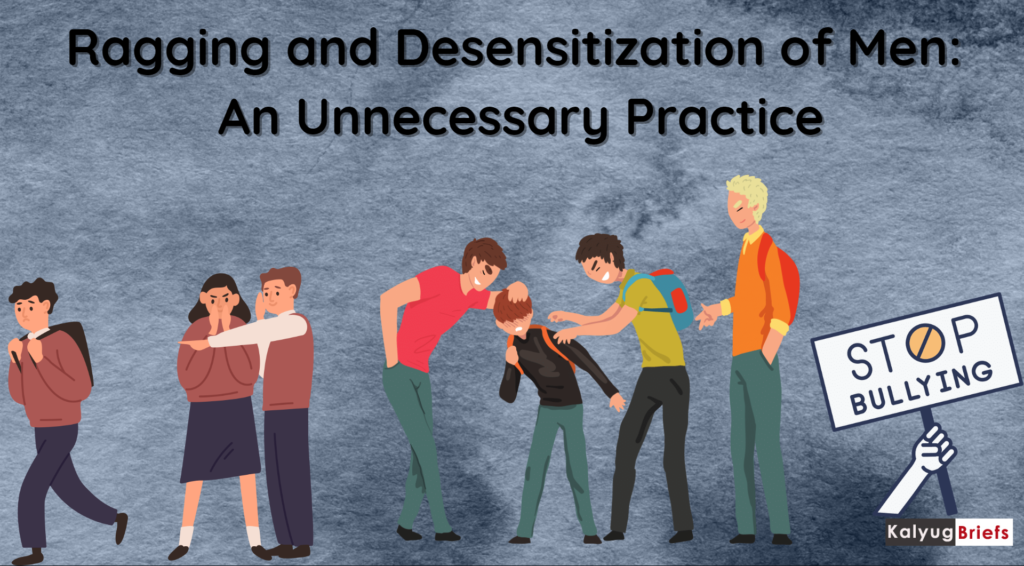Ragging and Desensitization of Men: An Unnecessary Practice
Introduction:
Ragging, the act of bullying and ill-treatment, has been prevalent in many educational institutions, including engineering colleges and professional institutes. Some individuals argue that it is a necessary initiation into the harsh realities of life. However, this practice not only contradicts the values we instill in our children but also leads to desensitization and long-term psychological consequences. It is crucial to question the need for such behavior in an evolving society that values empathy, compassion, and respect.
Contradiction to Parental Upbringing:
Parents invest their time, effort, and love into raising their children, teaching them about love, compassion, and empathy. However, when these children enter educational institutions, they often encounter rough and insensitive bullies who challenge the values they have been taught. This contradiction can lead to confusion, frustration, and even resentment towards their parents. Should parents be expected to discard their nurturing nature and expose their children to a hostile environment from an early age to prepare them for the harsh realities of the world?
The Purpose of Education:
The purpose of education is to empower individuals with knowledge, skills, and character to lead a fulfilling and successful life. Bullying and ragging serve no purpose in achieving these goals. Education should focus on nurturing creativity, critical thinking, teamwork, and emotional intelligence, rather than promoting aggression and insensitivity. In a world where coexistence and understanding are vital, there is no need to subject young individuals to unnecessary cruelty.
Long-Term Effects:
Victims of ragging often carry the scars of their experiences throughout their lives. The emotional trauma and desensitization caused by such acts can lead to long-lasting negative effects, including cynicism, depression, and difficulties in forming healthy relationships. Even after marriage, the life partners of those who suffered from ragging may bear the burden of their past, further perpetuating the cycle of emotional distress.
The Need for Change:
It is essential to recognize that we have moved beyond an era where men were trained for warfare and women participated in freedom struggles. Society has evolved, and our educational institutions should reflect this progress. Ragging should be completely banned from schools and colleges, creating a safe and nurturing environment for all students. By doing so, we can ensure that young individuals grow up to be compassionate, empathetic, and respectful members of society.
Conclusion:
Ragging and bullying have no place in educational institutions. It contradicts the values we teach our children and can have severe long-term consequences on their emotional well-being. It is time to prioritize empathy, compassion, and respect in our educational systems. By eliminating ragging, we can create an environment that fosters personal growth, emotional intelligence, and the development of responsible and compassionate individuals who contribute positively to society.
